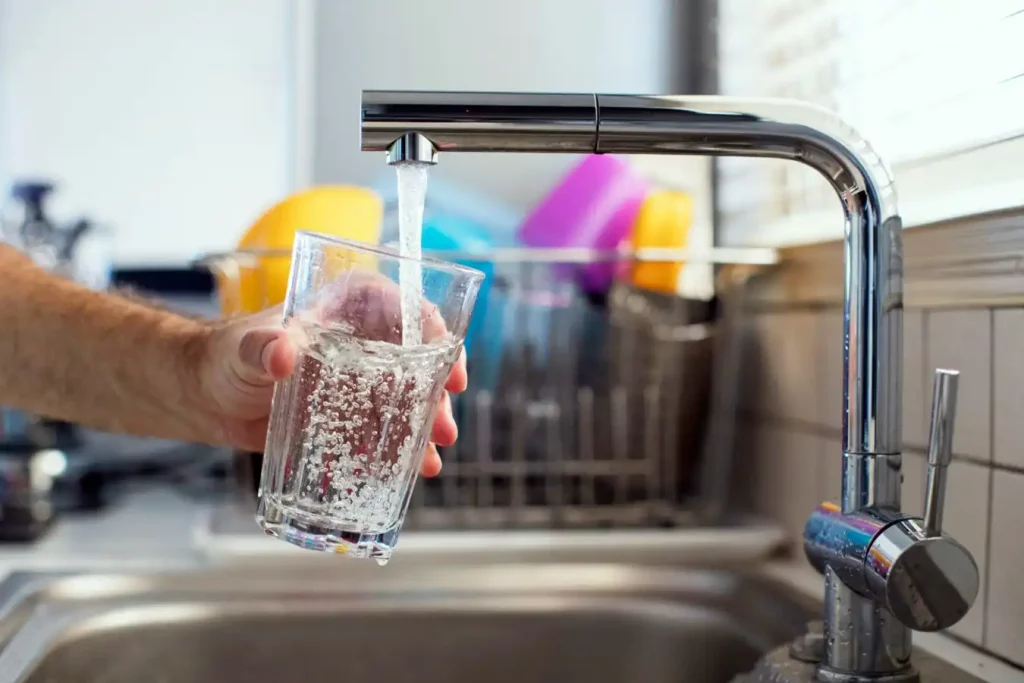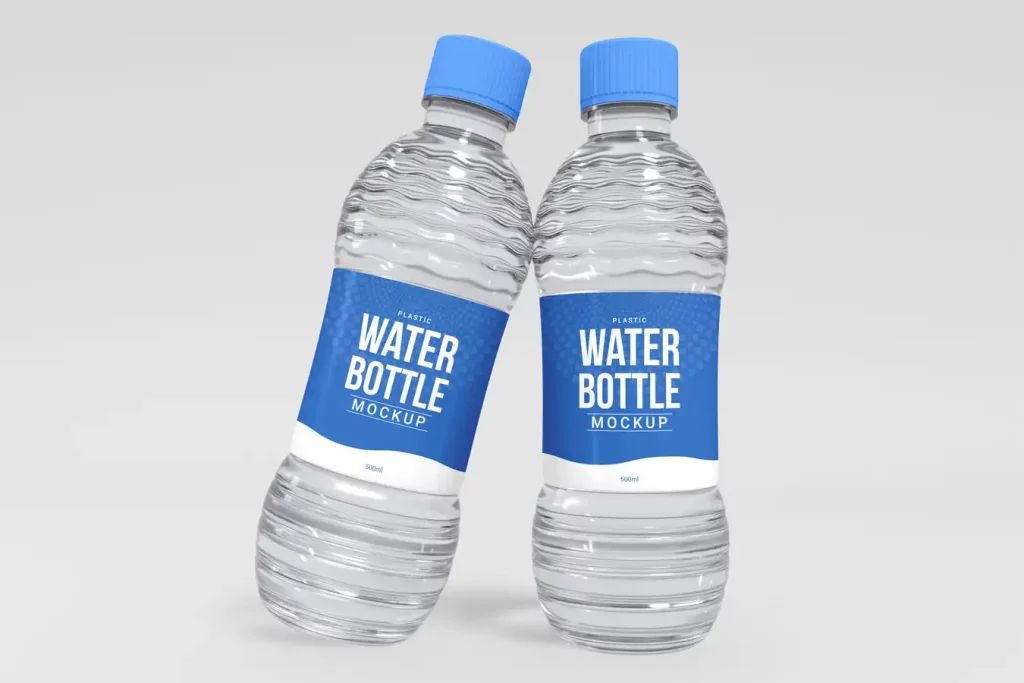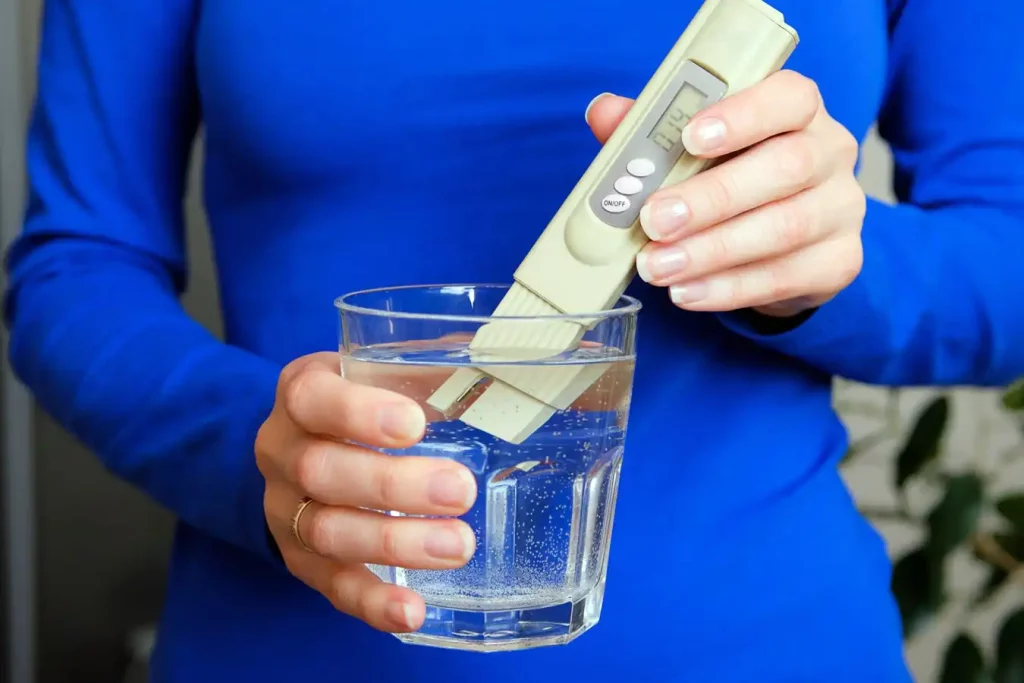Have you ever think about what is the best type of water to drink?
Yes, water is one of the most important elements of our lives; without it, our human body cannot work.
Our bodies are made up of about 60% water.
From spring water to filtered, ensuring optimal hydration is more nuanced than one might think.
There's tap water, bottled water, distilled water, spring or mineral water, alkaline water, and even purified water. Learn more about type of water and which is safe for our daily lives.
The Different Types of Water
With the array of choices available, it can be quite a task to figure out what is the best type of water to drink. Not all water is created equal, and the type of water you choose can have different impacts on your health.
Tap Water
Tap water is the most common and accessible type of water. It is regulated by local municipalities and generally safe to drink, though the quality can vary depending on where you live. The upside? It’s readily available and economical. On the flip side, tap water can sometimes contain trace amounts of contaminants like heavy metals and chlorine, which some people are concerned about.

Bottled Water
Bottled water is often praised for its convenience. It’s portable and can be found nearly everywhere. But is it the best choice? Not necessarily. While bottled water is usually sourced from springs or groundwater, it's not always the case. Some brands are just repackaged tap water. Plus, bottled water contributes to plastic waste, an environmental issue we can't ignore.

Distilled Water
Distilled water is tap water that has been boiled into vapor and condensed back into liquid in a separate container, removing its impurities. It’s often used in laboratories and for car batteries due to its purity. However, the distillation process also removes beneficial minerals, which makes it less ideal for everyday drinking.

Spring Water
Spring water comes from natural springs and contains various minerals like calcium, and magnesium. These minerals not only add flavor but also provide nutritional benefits. However, it’s important to note that mineral content can vary greatly depending on the source.

Alkaline Water
Alkaline water is characterized by its higher pH level compared to regular drinking water. Proponents argue that it can neutralize acid in your body and boost your metabolism. However, there's little scientific consensus to support these claims, and drinking too much could lead to metabolic alkalosis, a condition that can cause nausea and vomiting.

Purified Water
Purified water has undergone a process that removes chemicals and other contaminants. It can come from any source since it's the purification process that distinguishes it. But much like distilled water, it can lack the beneficial minerals found in other water types.

In short, spring water is often considered the best water to drink because it naturally contains essential minerals like calcium and magnesium, has a crisp and refreshing taste, and unlike other water types, it undergoes minimal processing which helps maintain its original purity and health benefits.
Water Quality and Safety Concerns
While water is vital for our survival, not all water is safe to drink. Water quality and safety concerns revolve around potential contaminants and impurities that can adversely impact our health.
Contaminants and Impurities in Water
Every water source can potentially contain impurities, including natural ones like minerals and man-made pollutants like pesticides or industrial waste. Common contaminants in water include heavy metals such as lead or mercury, bacteria, viruses, nitrates, and pharmaceuticals. These can lead to a variety of health problems, ranging from stomach issues to neurological damage and even cancer. Safe drinking water should be free of these contaminants in any significant quantities.
Standards for Water Quality
Thankfully, there are strict standards in place for water quality. In many countries, domestic regulations ensure the safety of tap water. In the United States, for example, the Environmental Protection Agency (EPA) sets standards for more than 90 contaminants in drinking water.
Internationally, the World Health Organization (WHO) provides guidelines on safe levels of various substances in drinking water. These standards are based on the best available scientific evidence and provide a basis for countries to develop their own national regulations.
Learn more: How Many Bottles of Water is 100 oz
Health Benefits and Risks of Different Types of Water
Beyond basic hydration, the type of water we drink can have other effects on our health. However, it's essential to understand that different types of water carry unique benefits and potential risks.
Health Benefits
Firstly, all types of water help with hydration, which is vital for nearly every function in our body, from temperature regulation to cognitive function.
Additionally, some types of water come with added nutritional benefits. For instance, mineral water can provide essential minerals like calcium and magnesium, which contribute to bone health and heart function, respectively.
Some people also find that certain types of water can aid digestion and metabolism. For example, proponents of alkaline water claim it can help neutralize acid in the body, although this claim is not universally accepted in the scientific community.
Health Risks
When it comes to health risks, overconsumption of water can lead to a condition called hyponatremia, or water intoxication, which happens when your body's electrolyte balance is thrown off.
Moreover, as we discussed earlier, the potential for contamination is a concern. Even bottled water, which is often perceived as purer than tap water, can contain contaminants if not properly stored and handled.
Finally, certain types of water can have negative effects on bodily processes. For instance, drinking water that's too pure, such as distilled water, can potentially leach minerals from your body, leading to a mineral deficiency.
While it's crucial to be aware of these potential risks, remember that for most people, drinking a reasonable amount of clean water of any type is beneficial and necessary for good health.
To know more: How Much Water Per Day Camping
How to Choose the Best Type of Water to Drink
When it comes to picking the best type of water to drink, the choice isn't always clear-cut. Several factors, such as safety, taste, nutritional content, environmental impact, and cost, can influence your decision. Let's dive into these aspects to help you make an informed choice.
Water Quality and Safety
First and foremost, the water you drink must be safe. Regardless of the source, all drinking water should be free from harmful contaminants. Therefore, it's a good idea to have your water tested, especially if you rely on well water or are concerned about your municipal water supply. You can either use at-home test kits or hire professionals to evaluate the quality of your water.
Taste Preference
The taste of water can vary significantly between different types, primarily due to mineral content and treatment methods. Some people prefer the taste of mineral water, finding it smooth and crisp due to the presence of minerals like calcium and magnesium. Others might prefer the neutrality of purified water, which has had most of its minerals and impurities removed. When it comes to taste, it often comes down to personal preference.
Nutritional Content
As we discussed earlier, the mineral content of water can vary widely. Mineral water, as the name suggests, contains a higher concentration of essential minerals than other types. These minerals not only affect the taste but also contribute to your daily nutritional intake. However, remember that while water can contribute to your daily mineral intake, it shouldn't be your primary source of essential minerals.
Environmental Impact
Environmental impact is another factor to consider when choosing your water. Bottled water, while convenient, generates a lot of plastic waste that contributes to environmental pollution. On the other hand, tap water has a much lower environmental impact, especially if you use a reusable bottle. Additionally, treating and distributing tap water is more energy-efficient than producing and transporting bottled water.
Cost and Accessibility
Finally, the cost and availability of water can significantly influence your choice. Tap water is almost universally accessible in developed countries and is the most cost-effective option. In contrast, bottled water can be several hundred times more expensive than tap water, and the cost of home filtration systems can also add up over time.
Choosing the best type of water to drink often requires balancing these factors based on your individual needs and values.
Read more: What Type of Water Bottle is Safest
Expert Opinions and Recommendations
Given the abundance of choices when it comes to drinking water, it can be helpful to hear from experts in the field. Let's delve into the insights of nutritionists and healthcare professionals to help guide our decision-making process.
Insights from Nutritionists
Nutritionists typically emphasize the importance of hydration and maintaining a balanced diet. According to the Academy of Nutrition and Dietetics, while some types of water may provide small amounts of minerals, it's important to rely on a varied, balanced diet for meeting nutritional needs. Water aids in digestion, absorption, transportation of nutrients, and maintenance of body temperature. Therefore, the focus should be on drinking a sufficient amount of safe and clean water.
Opinions from Healthcare Professionals
Healthcare professionals, including doctors and dietitians, often recommend drinking water that is free of contaminants. While some endorse specific types of water like mineral water for its additional mineral content, the emphasis remains on the safety of the water above all else. The World Health Organization states that access to safe drinking water is essential to health, a basic human right, and a component of effective policy for health protection.
However, if water quality is a concern, healthcare professionals often recommend using certified water filters or opting for bottled water from trusted brands.
Read next: How Many Inches is a Water Bottle Across the Types
FAQs about Type of Water is Best to Drink
What is better purified or spring water?
Both have their merits - purified water provides maximum purity and is free from contaminants, while spring water offers natural minerals beneficial for health.
Should I drink distilled water?
Distilled water is safe to drink and can be beneficial when purity is the top priority, but it lacks the minerals found in other water types.
What is the best water for hydration?
All types of water can provide hydration, but those with added electrolytes like some bottled or sports water may enhance hydration, especially during intense physical activity.
Is purified water the healthiest?
Purified water is healthy in that it is free from contaminants, but it lacks the beneficial minerals found in mineral or spring water.
Why is spring water preferred over purified water?
Spring water is often preferred for its natural mineral content and taste, which purified water may lack due to its rigorous filtration process.
Read also: How to Boil Water While Camping
Final Words about Best Type of Water to Drink
We've journeyed together through the streams of knowledge, dipping our toes in various sources of water, from tap water to spring water and everything in between. In the process, we've discovered that water, simple as it may seem, has a complexity that is deeply intertwined with our health, well-being, and lifestyle choices.
We've also confronted the stark reality of water quality and safety concerns. The water we drink isn't always as pure as we'd like it to be, posing potential risks to our health. Yet, regulatory measures on both the domestic and international fronts strive to ensure we get safe water to quench our thirst.
Health benefits and risks associated with different types of water have been another key area of our exploration. Some water types contribute vital minerals to our bodies, while others, if consumed excessively, might lead to health issues.
Finally, while your choice of water can contribute to your health, it's just one piece of the puzzle. A balanced diet, regular exercise, and adequate sleep are also vital elements of a healthy lifestyle. So, take a sip of your preferred water, and toast to good health!
To know more: How Tall is a Water Bottle in Inches


